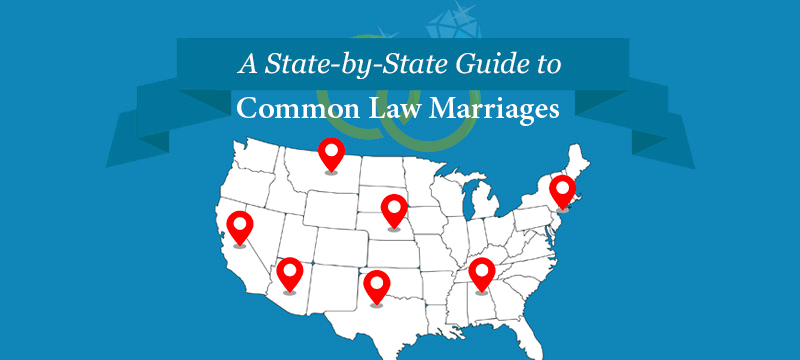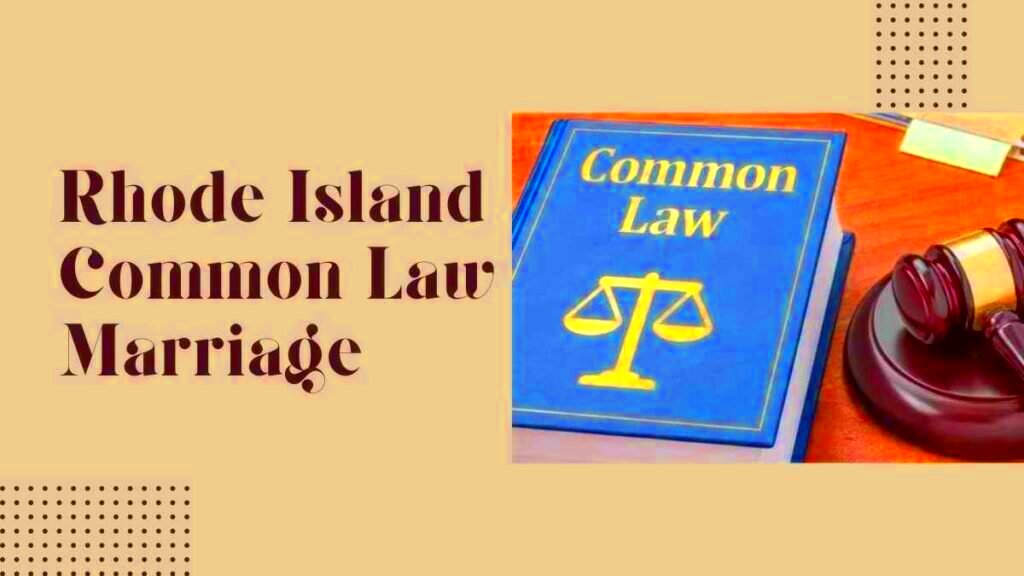Common Law Marriage in Rhode Island Explained
Common law marriage is a unique legal concept that allows couples to be recognized as married without a formal ceremony or marriage license. In some states, living together for a certain period while presenting yourselves as a married couple can establish this status. Understanding common law marriage is essential, especially in Rhode Island, where laws can be quite specific.
History of Common Law Marriage in Rhode Island

The roots of common law marriage trace back to English common law, where the idea was based on the belief that marriage is a social contract. In Rhode Island, common law marriage has evolved over the years. Initially, the state did not recognize common law marriages, reflecting a more traditional view of marriage requiring formalities. However, in 1950, a significant change occurred when Rhode Island adopted a statute allowing for the recognition of common law marriages under specific circumstances.
Today, common law marriages in Rhode Island are recognized if certain criteria are met. It’s important to note that not all states recognize this type of marriage, making Rhode Island’s stance relatively unique. This recognition often leads to various legal implications regarding property rights, inheritance, and other family law matters.
Requirements for Common Law Marriage in Rhode Island

To establish a common law marriage in Rhode Island, couples must meet several essential requirements:
- Co-habitation: The couple must live together for a significant period.
- Mutual Agreement: Both individuals must agree to be married and present themselves as a married couple.
- Capacity to Marry: Both partners must be legally able to marry, meaning they are not already married to someone else.
- Public Declaration: The couple must represent themselves to others as being married.
It’s important to note that merely living together is not enough. The couple must demonstrate their commitment through actions and words that indicate a marital relationship.
Additionally, while Rhode Island does recognize common law marriages, couples are encouraged to formalize their union through a traditional marriage ceremony for legal clarity and security. This formalization can simplify many legal processes in the event of separation or the passing of a partner.
Legal Recognition of Common Law Marriage

In Rhode Island, common law marriages are legally recognized under specific conditions. This means that couples who meet the criteria for common law marriage enjoy the same legal rights and responsibilities as those who undergo a traditional marriage ceremony. Legal recognition can impact various aspects of life, including:
- Property Rights: Common law spouses have rights to property acquired during the relationship, similar to those in a formal marriage.
- Inheritance: In the absence of a will, common law spouses are entitled to inherit from each other, just like married couples.
- Health Decisions: Legal recognition allows common law partners to make medical decisions for each other in emergencies.
However, it’s essential to keep in mind that proving a common law marriage can sometimes be challenging. Couples may need to provide evidence of cohabitation, shared finances, and public representation as a married couple. In some cases, this can involve documentation like joint bank accounts, leases, or tax filings.
Differences Between Common Law Marriage and Formal Marriage

Understanding the differences between common law marriage and formal marriage can help couples navigate their relationship and legal standing. Here are some key distinctions:
| Aspect | Common Law Marriage | Formal Marriage |
|---|---|---|
| Requirements | No ceremony or license needed | Requires a marriage license and ceremony |
| Legal Formality | Automatically recognized upon marriage | |
| Proof of Marriage | May require evidence to establish | License and certificate serve as proof |
While both types of marriage offer legal rights, formal marriage generally provides a clearer legal framework. Couples in common law marriages might face additional hurdles if they ever need to prove their marital status, especially in legal proceedings.
Ending a Common Law Marriage
Ending a common law marriage involves a process similar to divorce but may have some unique aspects. Here’s what to know:
- Separation: Just like in formal marriages, couples can separate. However, it’s essential to understand that simply moving apart does not officially dissolve the marriage.
- Legal Dissolution: To end a common law marriage, one may need to file for divorce. This process involves legal proceedings to divide assets, address custody issues, and determine spousal support.
- Documentation: Gathering evidence of the relationship and its end may be necessary, especially if disputes arise.
It’s advisable for individuals ending a common law marriage to seek legal counsel. An attorney can guide you through the process and help protect your rights. Just like formal marriage, ending a common law marriage can be complex, and having support can make a significant difference.
Benefits and Drawbacks of Common Law Marriage
Common law marriage comes with its own set of benefits and drawbacks. Understanding these can help couples make informed decisions about their relationship.
Benefits:
- Less Formality: Couples can enjoy the status of being married without going through a formal ceremony or obtaining a marriage license. This can be appealing for those who prefer a low-key approach.
- Legal Rights: Common law spouses have many of the same legal rights as formally married couples, including property rights and inheritance rights.
- Flexibility: Common law marriages offer more flexibility in defining the relationship. Couples can create their own understanding of what their marriage means.
Drawbacks:
- Proving Marriage: Establishing a common law marriage can be complicated if the relationship ends or if legal issues arise. Couples may need to provide substantial evidence of their commitment.
- Limited Recognition: Not all states recognize common law marriages, which can lead to complications if couples move or travel.
- Potential for Misunderstanding: Without formal documentation, there may be misunderstandings about the legal standing of the relationship.
Ultimately, the decision to enter into a common law marriage should be carefully considered, weighing both the benefits and drawbacks to determine what works best for each couple.
Frequently Asked Questions
Here are some common questions about common law marriage in Rhode Island:
- Is common law marriage legal in Rhode Island? Yes, Rhode Island recognizes common law marriages if specific conditions are met.
- How long do you have to live together to be considered common law married? There is no set time frame, but couples must demonstrate mutual agreement and present themselves as married.
- Can you get a divorce from a common law marriage? Yes, ending a common law marriage typically involves filing for divorce, just like a formal marriage.
- Do common law spouses have the same rights as formally married couples? Yes, in most cases, they share similar legal rights, including property and inheritance rights.
Conclusion
Common law marriage in Rhode Island offers couples an alternative to traditional marriage, allowing them to be recognized as married without the formalities. While it comes with benefits like legal rights and less formality, there are also drawbacks, such as the potential complications of proving the marriage. Understanding the legal landscape and the specific requirements is crucial for anyone considering this path. If you’re in a common law marriage or thinking about it, it’s wise to consult with a legal expert to navigate the complexities. Ultimately, every couple must decide what works best for them, considering both their relationship and their future together.


